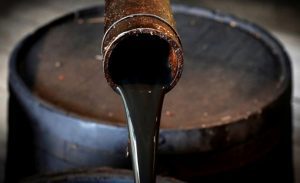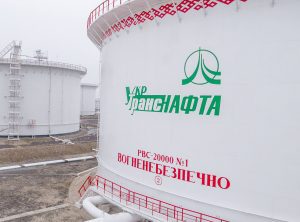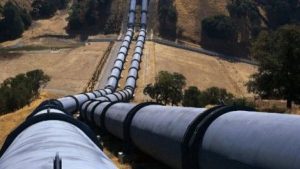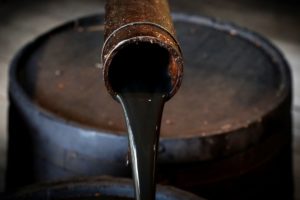
Ukraine in January-June 2020 increased import of oil (according to foreign economic activity code 2709) by 2.4 times (or 453,817 tonnes) compared to the same period in 2019, to 773,515 tonnes.
According to the State Customs Service of Ukraine, in the first half of the year, $264.688 million worth of raw materials were imported, which is 1.6 times more than in January-June 2019 ($165.235 million).
Oil supplies from Azerbaijan totaled $170.783 million (a share of 64.52%), the United States some $48.338 million (18.26%), Libya some $45.555 million (17.21%), and other countries some $0.012 million (0%).
Ukraine did not export crude oil in January-June 2020 and in 2019.

Kernel, one of the largest Ukrainian agricultural groups, in the third quarter of FY2020 (started in July 2019) cut sunflower oil sales by 2% year-over-year, to 380,900 tonnes.
According to an operations update posted on the website of the company, the share of bottled oil of total sales in January-March 2020 was 10% (39,000 tonnes).
Oilseeds crushing in Q3 FY2020 grew by 4%, to 940,650 tonnes, running crushing plants at full capacity.
The holding said that grain exports from Ukraine in January-March 2020 grew by 41%, to 2.15 million, including 35% of grain produced by company’s farming division, and the remaining was originated from external suppliers.
Export terminal throughput volumes in Ukraine reached 1.9 million tonnes in the reporting period, up 66% year-over-year, on the back of strong grain export volumes from Ukraine and increased contribution from new TransGrainTerminal. Grain and oilseeds received in inland silos fell by 65%, to 124,540 tonnes.
Kernel cut sunflower sails by 12% year-over-year, to 1 million tonnes. Sunflower crushing grew by 115, to 2.52 million tonnes. The company is progressing on the guidance to process 3.3 million tonnes of sunflower seeds for the whole FY2020.
In 9M of FY2020 grain exports from Ukraine grew by 30%, to 6 million tonnes.
According to the document, export terminal throughput volumes in Ukraine in 9M of FY2020 grew by 41%, to 4.82 million tonnes. Grain and oilseeds received in inland silos fell by 2%, to 4.12 million tonnes.

Ukraine in January-March 2020 increased import of oil (according to foreign economic activity code 2709) by 22.7% (by 33,400 tonnes) compared to the same period in 2019, to 180,673 tonnes.
According to the State Customs Service, in the first quarter, $99.746 million worth of raw materials were imported, which is 41.3% more than in January-March 2019 ($70.581 million).
So, oil supplies from Azerbaijan totaled $37.884 million (a share of 37.98%), Libya some $31.745 million (31.83%), the United States some $30.118 million (30.19%).
Ukraine did not export crude oil in January-March 2020 and in 2019.

Crude oil transit by pipelines across Ukraine to European countries and Belarus grew by 1.3% in January-March 2020 or by 44,600 tonnes year-over-year, to 3.448 million tonnes, according to information from JSC Ukrtransnafta.
The volume of crude oil transportation to oil refineries in January-March 2020 amounted to 592,100 tonnes, which is 17.2% (86,900 tonnes) more than in the same period last year, including oil transportation by the Odesa-Kremenchuk line amounted to 229,900 tonnes.
Thus, in the first three months of this year, the share of transit volume in the total transportation of crude oil (4.04 tonnes) amounted to 85.3%, the share of supplies to the country’s refineries – 14.7%.
In March 2020, crude oil transit through Ukraine by pipeline grew by 16.2% (by 194,500 tonnes) compared to the same month of 2019, to 1.396 million tonnes, while pumping to the country’s refineries increased 5.7% (10,500 tonnes), to 196,300 tonnes.

Oil transit through Ukraine to European countries in January 2020 decreased by 3.6% (by 40,000 tonnes) compared to the same period in 2019, to 1.057 million tonnes, JSC Ukrtransnafta has reported. The volume of oil transportation to oil refineries in the country in January 2020 amounted to 188,500 tonnes, which is 16% (26,100 tonnes) more than in January 2019.
Thus, in January 2020, the share of transit volume in the total transportation of oil (1.246 million tonnes) was 84.9%, the share of pumping to the country’s refineries was 15.1%.

Ukraine in 2019 increased import of oil (according to foreign trade activity code 2709) by 3.1% (by 23,796 tonnes) compared to 2018, to 790,628 tonnes.
According to the State Customs Service, last year oil was imported for $405.748 million, which is 6% less than in 2018 ($431.735 million).
Azerbaijan supplied raw materials worth $309.443 million (a share of 76.26%), the United States for $90.999 million (22.43%), Kazakhstan for $2.596 million (0.64%), and other countries for $2.710 million (0.67%).
In 2019, Ukraine exported 103 tonnes of oil worth $53,000. The entire volume was delivered to Latvia in June.